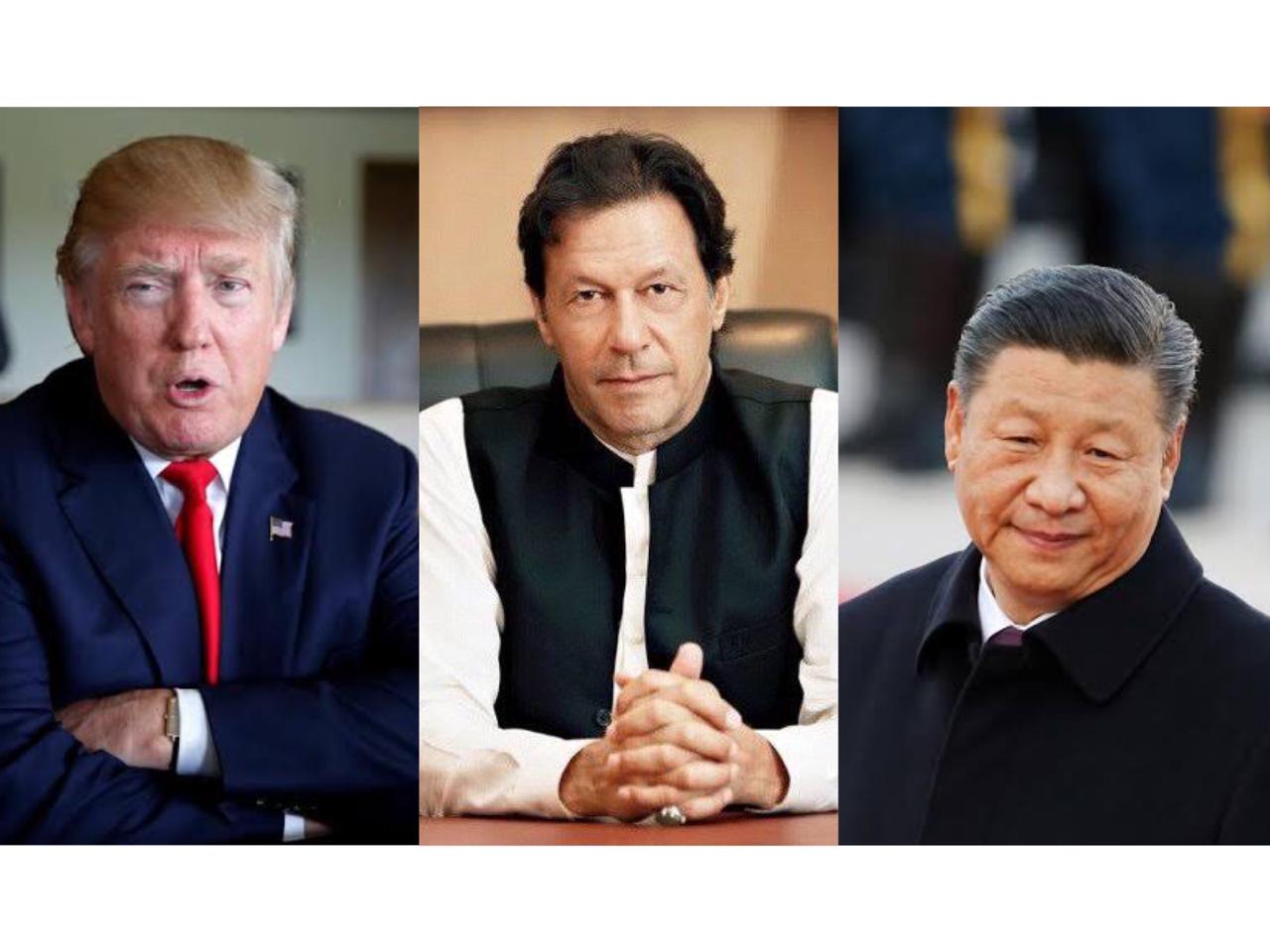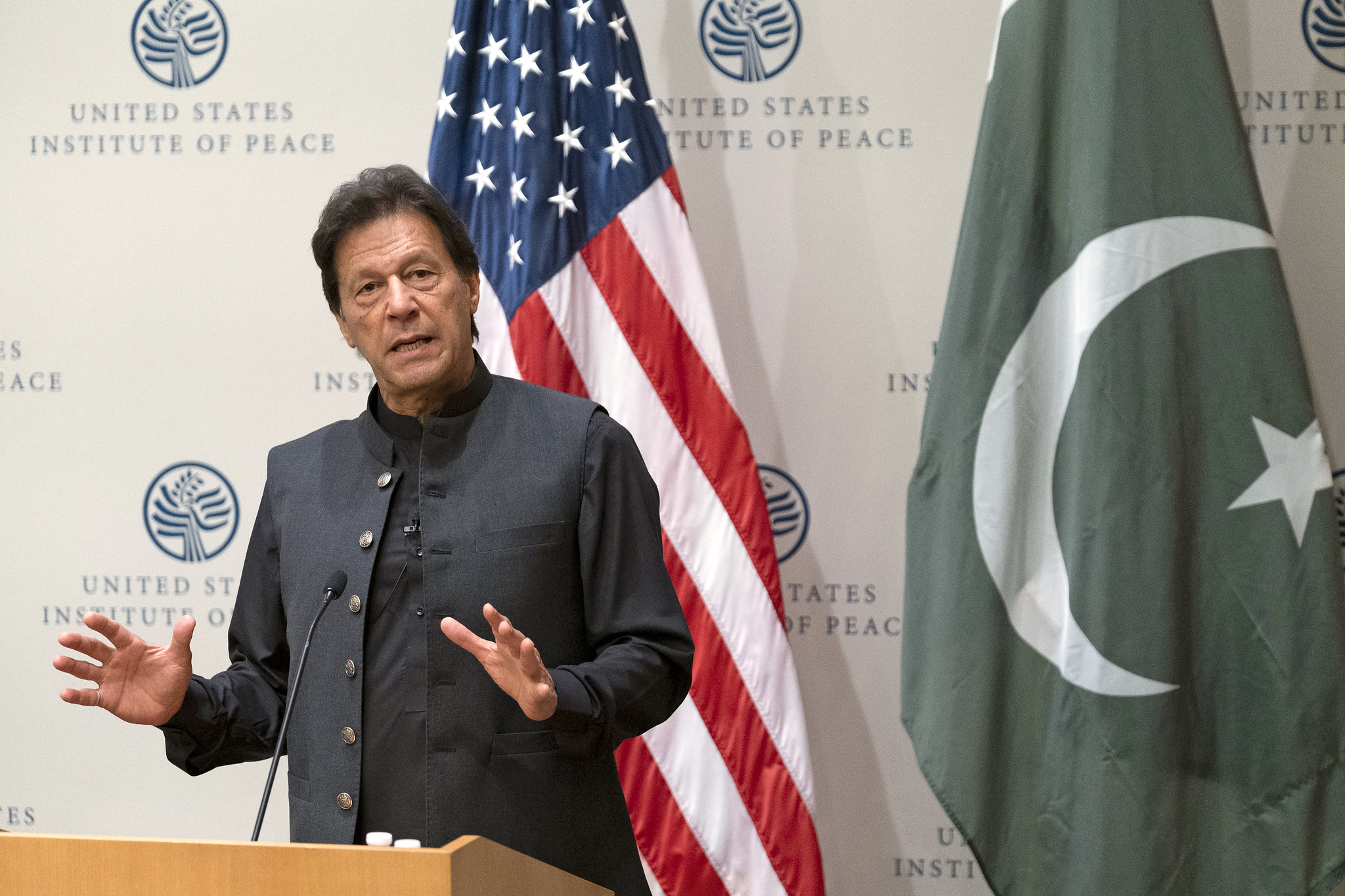China’s rise to power, specifically in the context of economy and political influence, has transformed the dynamics of its relationship with the U.S. from cooperation to competition and power tussle.
The post-9/11 geopolitical confrontation of the U.S. and China has had various implications for the security of South Asian region, especially for the security of Pakistan. The U.S.-China strategic geopolitical tussle has implications for the security of Pakistan at the domestic, regional, and global level.

The theories of realism and power transition theory have been applied to further support the arguments theoretically. More specifically, both super powers are having divergence of interests in the Asia-Pacific region, which is directly related to Pakistan’s security in South Asia and ,especially, in Indian Ocean Region (IOR).
The U.S. moves toward Asia-Pacific as a pivot strategy in order to contain the rising power of China. Washington views China’s Belt and Road Initiative (BRI) as a counter strategy to its interests in the region. This geopolitical contest has brought severe security implications for Pakistan and it requires a serious effective measures to overcome the security threat.
The relations of U.S and China were not as much controversial to each other in 20th century as of today. When both great powers entered into the 21st century their relations had become complex. Since 9/11, the terrorist attack on Pentagon, the relations between U.S. and China has been intensified.

China in place of Russia has become a threating rival of U.S in the 21st century and now there is great rivalry is going on in between the two big powers. Their rivalry is not only limited to these two powers but it is a widespread threat to whole world as well. As both powers have established their alliances against each other so in this sense it’s a wrecking havoc for allies too.
The U.S always make its foreign policy to contain the rising power of China. As China has become a great power in terms of economic development so it’s a biggest challenge to U.S. in the domain of the 21st century. U.S.-China relations marked a complex liaise in the post 9/11 period that includes cooperation and confrontation as well. Since China has now become a great power in the domain of economic clout, thus it has contributed a shift from Atlantic to the Asia-pacific.
Currently in this globalized era, both great powers are having convergence and divergence of their interests in a sense of social, political, and economic as well. U.S.’ Asia-Pacific strategy posed a great threat to China’s interests in the Indian Ocean Region (IOR). In addition to this U.S.’ Quad alliance also a big threat to China and it’s rising influence in the region. In order to mitigate the threats posed by U.S.,
China has taken an alternate to fulfill its interests without any impediments from its rivals. Belt and Road Initiative (BRI) has been considered as a counter strategy of China to culminate the ever-rising threats imposed by U.S. especially in the Indian Ocean. The current conflictual relations (rivalry) of U.S and China have now become a great threat to Pakistan’s security in the domain of domestic and regional level.
Pakistan’s tilt towards China and its deep cordial relation with China especially in the context of China Pakistan Economic Corridor (CPEC) and India’s strong alliance with U.S. have deteriorated the security of South Asian region.
Along with this, U.S considers China as a formidable strategic rival to its super powers status and U.S’ different strategies to contain China pose a new challenge to the global security as a whole. The U.S. and China have had convergence and divergence of interests in Asia post 9/11. The China’s top most economy in term of purchasing power parity and military strength second to U.S. is seems like China is going to establish a new world order post 9/11. That’s why U.S’ main focus regarding its foreign policy is always to contain the rising power of China.

It is predicted that the on going ups and downs between U.S.-China complex relations and the ever rising rivalry between these two major powers would ultimately come to an end in the form of power transition as has been analyzed via theoretical framework by the in-depth analysis of power transition theory. As one can analyze the scenario of cold war like situation between U.S. and China then it would ultimately exacerbate the already deteriorated security of Pakistan at domestic, regional, and global level as well.
The above statement has two distinct variables and there is direct proportion relation between two variables of U.S.-China rivalry which is an Independent variable and is a cause, while its implications for Pakistan in a sense of security is a dependent variable and is the effect of independent variable.
However, China started rising in terms of its political and economic boost and enhanced its trade relation with Asian and European countries as well. Other than that, both major powers have had convergence and divergence of interests in Asia and especially in Info-Pacific Ocean and it interplay the competition between the two giants. Since the dawn of the 21st century, post 9/11, the political, economic, and military relations between U.S.

and China based on power politics and both are trying their best to gain regional and global influence. China’s ever-rising economy always remain a major focus of U.S’ foreign policy post 9/11 and U.S. adopted certain strategies to contain the rising economic power of China. In 2005, U.S’ secretary of state Robert B.Zoellick recognized China as an emerging power and made a statement that China is a responsible stakeholder in the international system.
Similarly, in 2007, China increases its military spending but U.S’ vice president Dick Cheney argued that China’s military spending and its military buildup is not consistent. In response to this critical view says that the purpose of increasing military spending to raise the salaries of soldiers and to protect national security and territorial integrity in a better way.
There arises the factor of competition that China , by increasing its military buildup, is trying to compete U.S. not only in economic perspective but in military domain as well. So the relations that were based on cooperation in U.S.-China relations post 9/11 in certain dynamics like human rights, eradicate terrorism climate change, and so on, shifted toward competition due to the rising power of China.
As China’s military, political, and economic stature has risen, so it draws competition with the U.S. In 2010, China, by surpassing Japan, becomes second largest economy of the world and valued $1.33 trillion in the second quarter of 2010.
According to the prediction of Goldman Sachs chief economist Jim O’Neill, that China will overtake U.S. as the largest economy of the world by 2027. So again the factor of competition between the two giants get rise. Soon after becoming the second largest economy U.S. adopted strategy of “Pivot Asia” to contain China.
To sum up, the intensifying rivalry of U.S. and China has deteriorated the security Pakistan at domestic, regional, and global level as well. The geo-strategic interests of both major powers in Pakistan undermine the security of Pakistan domestically. Likewise, the ever-rising conflict and competition between Beijing and Washington in Indian Ocean Region (IOR) and U.S. strategic collaboration with Indian contaminate Pakistan’s regional security. Similarly, both major powers confrontation in other regions of the world like in Europe, Central Asia region, in Middle East make Pakistan’s security at stake globally.
However, to ensure its security at all three stages, Islamabad needs to redefine its relations with both rival states. Pakistan’s tilt toward any side will further deteriorate its security domestically and regionally as well.
To ameliorate the security domain, Pakistani policy makers need to restrain from putting all theirs eggs into one basket. Pakistan can only maintain its security by managing its relations with both competitors i.e. U.S. and China.
Notwithstanding, it would be a state of despair if Pakistan manages its close ties with one major power and deteriorates its relation with the other. Therefore, Islamabad needs to formulate its relations with major powers i.e. U.S. and China cunningly.
By doing so, Pakistan can serves its national interests with both major powers and can ensure its security at domestic, regional, and global level as well.
About Blogger:

Zeshan Nisar is recently completed the MSC in International Relation. He looks closely at international affairs and political situation of world.. Social issues are his favorite subject.Contact him : [email protected]
Note: The Turkplays Web does not necessarily agree with the author and the comments below.


